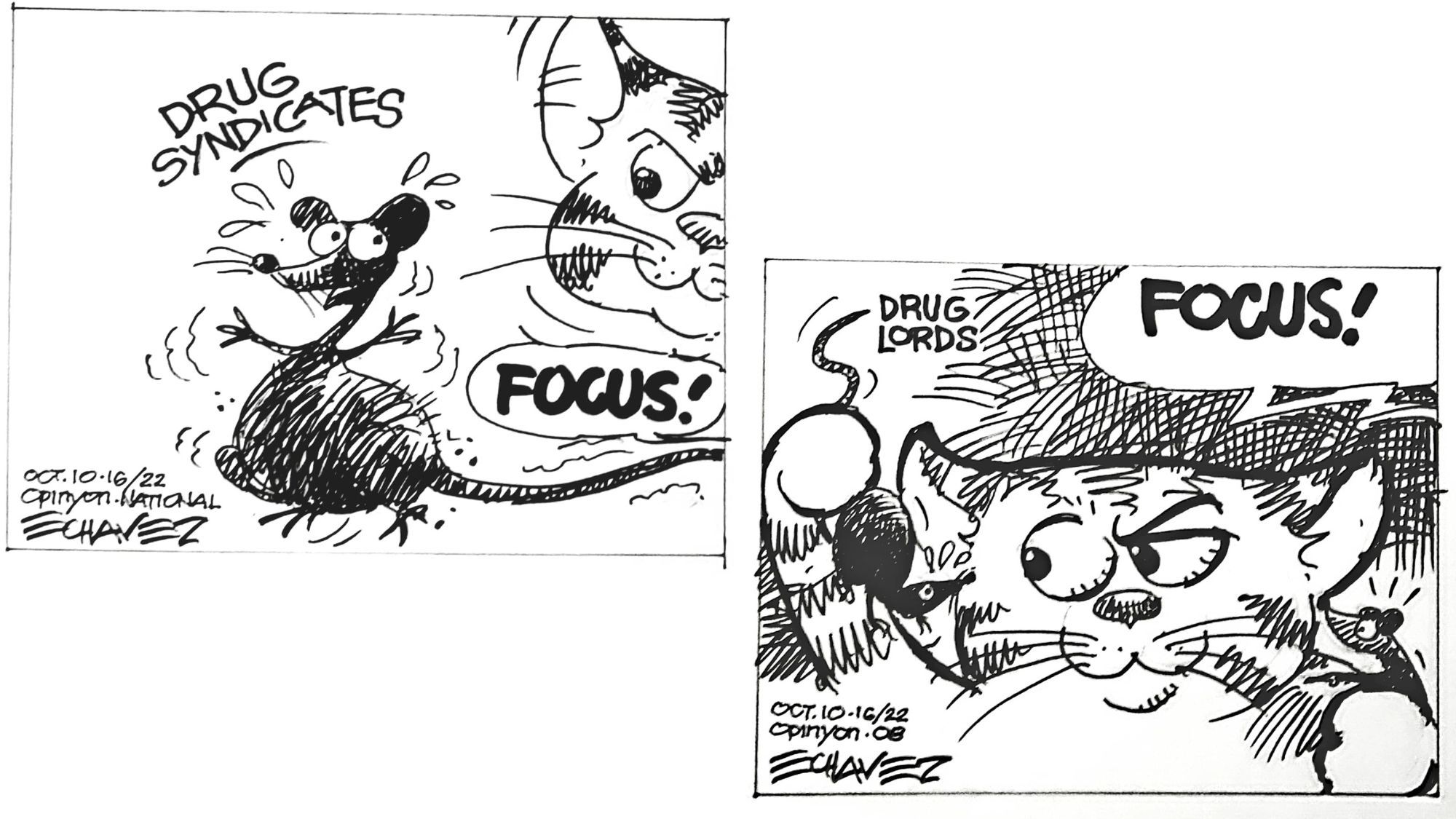President Marcos Jr. in his first, six-day state visit to the United States announced a “slightly different” approach to his predecessor’s drug war in that he would ask law enforcers to focus more on the suppliers (than the small users) and on rehabilitating those hooked to this deadly substance.
This early, his approach promises to be more humane and more direct to the point, but has he given the strict orders to the Philippine National Police and the Philippine Drug Enforcement Agency to do just as he says.
He told his audience in the US (thousands of miles away) that during his first command conference with PNP, “I asked them to adjust their focus. I want you to go after people who, if we get them, if we neutralize them, or put them in jail, put them away, we will make an actual difference so that the supply of drugs, the system of distribution … it will put a stop to it.”
This would be a drastic departure from the murderous “kill, kill, kill” mantra of Duterte, which led to the killing of thousands of mostly poor victims in bloody police operations.
The PDEA estimates at least 6,248 drug suspects were killed from 2016 up to end of April 2022, a death toll so appalling that it prompted the International Criminal Court in The Hague to launch an investigation against Duterte and his aides for crimes against humanity.
The United Nations Office of the High Commissioner for Human Rights placed the number of deaths at 8,600 as of March 2020, but human rights groups believe the more accurate count could be at least 20,000.
Hopefully this horrible loss of lives would end with Marcos Jr. if his order is implemented to the letter.
By ordering the police to go after drug lords, the President singled out the biggest flaw of the Duterte drug war—a high body count that however failed to make a dent in the flow of illegal drugs smuggled into the country.
Though it is yet too early to see if Marcos’ version of drug war would be bloodless, what is important now is that the shift in focus to the actual source of illegal drugs would put law enforcement agencies on the right track. Instead of rounding up small neighborhood users, they can spend their time and resources sniffing out the big drug syndicates and stop the drug menace at its source.
Its focus on rehabilitation and preventive programs would also save a lot more lives.
The new PNP chief, Gen. Rodolfo Azurin Jr., has similarly vowed to institute reforms, including a stop to the involvement of police in investigating drug war killings by their own kind.
“What is needed is that while we do our job, we also try to preserve human life because killing is not the solution,’’ Azurin said after his assumption of the PNP post, and rightly so.
